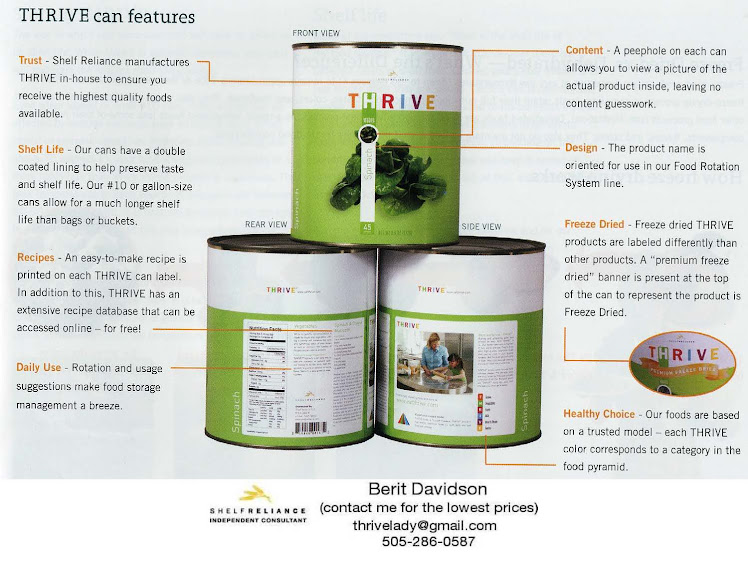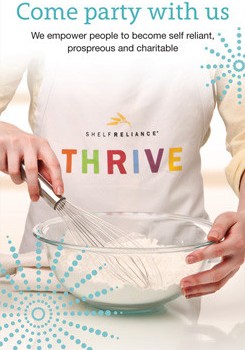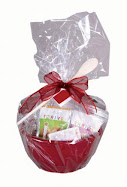By Sharon Astyk
Category: Electricity • Preparedness
We're just past the one year anniversary of the Northeastern power outage that had many people out this way out for a week or two last year, and what's the forecast up at our place? Snow, followed by sleet and icy rain and more ice. This seems like a recipe for trouble.
Being of a vaguely apocalyptic mindset, your blogiste is pretty good for a power outage, but it occurred to her that not everyone is probably ready. In fact, despite the fact that FEMA has *said* that in a crisis it may not be able to reach people immediately, despite the fact that an awful lot of Americans had extended outages last year, most Americans are woefully underprepared for an extended outage. My hope is that you will not be among them. So let's go over the basics of getting ready.
1. Consider your water situation. The most serious problems caused by power outages are water related. If you are on a well and rely on electricity to pump water, or if the storm involves heavy rains or flooding and water contamination, you can expect to be without water. Everyone needs water, and you will be extremely unhappy without it, so use some common sense and get some. At a minimum, get some old soda or milk bottles, clean them, and fill them with water when you know a storm is approaching. You can get larger containers as well. You can also drink the water from your hot water heater.
If you know that you may lose power, it only makes sense to fill the bathtub (if your tub holds water), buckets and pots so you've got plenty.
Stored water may not taste great - and keeping hydrated and warm is important. A stock of tea, coffee, or cocoa, or some Hi-C or Tang can make the water palatable.
2. You either need a way to cook without power, or you need lots of food that doesn't need cooking. You can cook outside on a grill or camp stove, but that won't be too much fun in a snow or sleet storm. If it is warm, you can use a solar oven once the weather settles down, but that won't help in a cold climate. If you have a woodstove, you can cook on top of it. Otherwise, some cans of sterno or a rocket stove (small homemade stove that uses tiny bits of biomass) are a good idea.
Have a thermos or two around, so that once you heat something - water, food, oatmeal, etc.. it stays warm.
3. If it is cold, you will need a way to keep warm. Bring in wood, or hook up your fuel source. A source of heat that doesn't depend on electricity is a good idea, or plenty of blankets, pets on the bed and someone to cuddle with. If you have no heat source, you will particularly want that sterno or something that allows you to boil water, so that you can heat your insides with tea, cocoa or coffee. Wrap kids up well in multiple layers, and sleep with them, or put them together. Babies should sleep up against you.
Remember, it is easier to heat yourself than it is to heat the room - you can put a brick near the woodstove or heater, and then wrap it in cloth and put it in your bed or under your feet to keep warm. You can put a cat on your lap or a dog next to you, or snuggle up to a honey. You can move close to the stove.
Again, if you are sure you are going to lose power, it makes sense to turn up the heat beforehand, to slow the chilling of your home. Check on elderly neighbors if it gets cold - they can die comparatively easily from hypothermia.
Dress in layers. I know everyone says this, but you really should. At night in our cold old house, I layer cotton long johns under fleece footed pjs for the kids, and can put a robe on top of it. We like long johns under PJs or jeans or leggings under long, warm skirts, and multiple tops. Don't forget to keep extremities warm.
4. Check out your lighting situation. Can you find your flashlight? Do you actually have batteries? Do you have oil and wicks for your oil lamps? If you have solar lights outside, you may be able to bring them inside during the evening. If you have notice, pick up extra batteries, and check your flashlight's condition.
If your kids panic in the dark, make sure you have a flashlight for them and spare batteries, lightsticks, or a nightlight with batteries. This is also good if you are prone to tripping over stuff.
5. All this burnable stuff - wood heat, propane heat, candles, oil lamps used by folks who don't use them every day ups your fire risk considerably. Check your smoke detector batteries and make sure you know how to use your fire extinguisher. Don't leave open flames around children or pets - supervise them carefully.
6. Have a plan for hygeine. You can fill the tub to flush the toilet - remember, you get one freebie from what's in the tank. It goes without saying that you should flush infrequently. Remember, the water you use for flushing doesn't have to be clean - you can use your dishwater after washing dishes.
If you know you are likely to lose power, do dishes and laundry, so that they don't pile up. If you use cloth diapers, consider picking up some disposables for the emergency if you are likely to be waterless.
Wash hands frequently, or use alcohol based hand sanitizer if you don't have enough water to wash.
If you can't flush, either put a garbage bag in the toilet and change it regularly, or set up humanure composting - find a place away from water sources and human habitation and collect human manure mixed with dry leaves, sawdust, shredded newspaper or some other high-carbon material. If you are in an urban area, you will probably want to set this up at the community level, and talk to your neighbors - remember, if they get sick, you probably will too.
A reserve of toilet paper is worth a lot.
7. Make sure you know how to use tools safety, and that you are careful when doing unaccustomed labor. Every year some people kill themselves using chainsaws for the first time, or give themselves a heart attack shovelling snow. If you are going to be doing more exertion than normal, and you can take asprin, you might want to take one. Otherwise, just take breaks and stop before you are totally exhausted. Wear appropriate clothing to the weather and the job you are doing. Stop if you get tired - that's when you make mistakes.
Fill your gas tank before the storm - gas may be unavailable if the power outage is widespread.
Also make sure before the storm that you know how to shut off your natural gas and drain your pipes so that they don't burst.
8. Have some food. If you have ever read this blog before, you should already have a reserve of food. If you haven't, go get one. The reality is that people are often stuck in their homes without food for days or even weeks - it happens *all the time* and IMHO, there's nothing wrong with taking help if you really need it, but it is a good deed to try not to need it, and to get out of the way so that the people who really can't help themselves get help.
If your food is in the freezer, eat it in this order. First, eat what's in the fridge, if you can't find a cold but non-freezing spot outside (remember, you may have natural refrigeration). Then eat what's in the freezer - but in the meantime, open it infrequently and cover it with heavy blankets to keep it as cold as possible. Food will last longer if your freezer is full, so you can freeze jugs of water, which you can then drink or use for washing. If you have a cookstove or grill, you can pressure can meat and other foods in the freezer, and if it is freezing outside, you can put food outside (if you have bears or roaming dogs, do what you need to to protect it). Otherwise, invite the neighbors in for dinner.
If you've been reading me, you probably already have a supply of needed medications, but if you don't, get prescriptions filled before the storm. Make sure you have basic stuff like bandaids and painkillers and a first aid kit. If you have a medically fragile person in your home, notify your police or fire department and your local utility company, so that they will put you on the priority list or check on you. If you know about medically fragile people in your community, check in on them.
9. Be prepared to take in refugees - people who get trapped away from home, people who have no heat or food or water. If you can put aside a little extra for them, great. If not, even a little companionship, shared body heat and a cup of tea are worth a lot in a crisis.
10. Try to relax and enjoy yourself. Sure, it may be a pain, but it is also an adventure. Everyone will be a lot less freaked out if you make it as fun as possible - eat all the ice cream before it melts, play board games, sing, make jokes about the peanut butter sandwiches. Don't panic - human beings survived without electricity for a long time. You'll be fine.
This is the short version - the longer and better version of this comes in Kathy Harrison's wonderful book _Just in Case_ - where she discusses all kinds of readiness in warm and reassuring and helpful terms.
Have an easy storm!





Subscribe to:
Post Comments (Atom)
THRIVE: Convenience; Healthy; Economical; Delicious

Greatest food storage system since Joseph in Egypt!















.jpg)








No comments:
Post a Comment